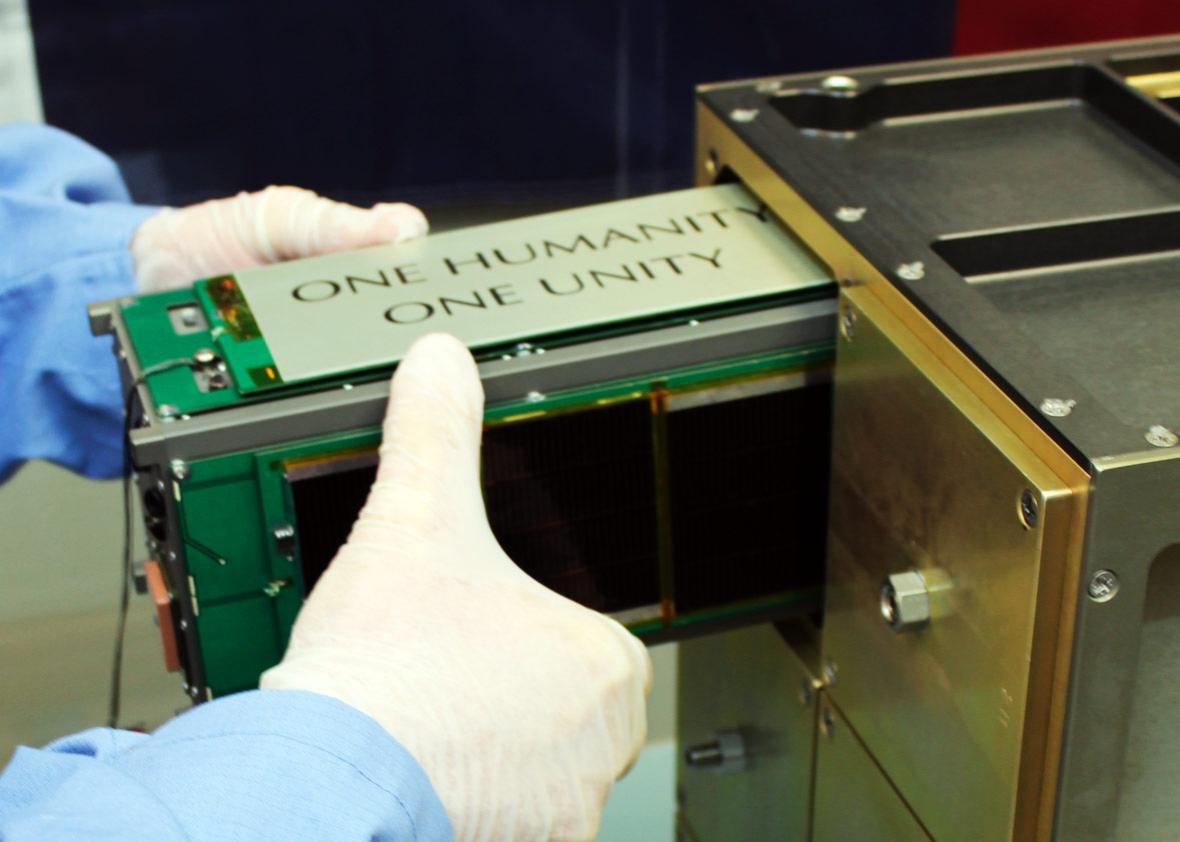On Sunday, when a spacecraft carrying 7,400 pounds of supplies was launched to the International Space Station, it was carrying something extra special: a football-sized satellite called Asgardia-1. The satellite, which contained a small hard drive, was named after the self-proclaimed “first ever space nation” Asgardia.
Asgardia is the passion project of Igor Ashurbeyli, a Russian engineer who dreams of creating a giant space station that will rotate the Earth while also acting as its own independent country. In announcing his initiative last year, Ashurbeyli and his team detailed his proposal to use Asgardia not just as a sovereign nation in its own right—complete with its own flag, national anthem, insignia, government, membership in the United Nations, and (surface-based) embassies across the world—but as a platform to help ensure the safety of humanity, from threats originating both here on the ground and in outer space.
It’s a kind of futuristic utopian dream that is also totally unrealistic.
Ashurbeyli conceived of Asgardia as free to all who wish to join a peaceful, demilitarized place. It would be exempt from the petty squabbles of terrestrial-based civilization and provide a “state-of-the-art” protective shield to keep the planet safe from incoming threats from outer space. The name takes its inspiration from Asgard, the mythological Norse city in the skies.
Asgardia is about as imaginary as Asgard. Yes, the satellite launched on Sunday carries with it a terabyte of data outlining the nation’s constitution, flag design, and symbols, as well as data on the 115,000 people who have signed up to be “citizens” through the internet. I don’t want to polemicize what makes a country a country, but I think we can all agree it’s more than just a bit of information on an external drive floating around aimlessly somewhere.
Personal aversions aside, it’s critical to note that although Asgardia’s ambition is certainly admirable, it’s a project that seems to be beyond realistic feasibility. First there are the technological and monetary constraints. The ISS, for instance, cost $100 billion to develop and run for 10 years. And the ISS is fit to house only six astronauts, whose spots rotate between at least 10 different countries every three to 12 months. Where would Asgardia’s 115,000 citizens live?
Then there are the political roadblocks to forming such a fantastical community. Sure, you can sign up to run for election for the 150-member Parliament right now if you wish, along with other leadership positions. But there’s no indication yet as to what’s going to be on the government’s plate—not least because the world itself has only the thinnest framework for the politics of space. The 1967 Outer Space Treaty is the most binding resolution the international community has in terms of what countries are allowed to do off the planet, and it’s 50 years old. It certainly doesn’t provide any direction for how a new nation in space could be created or how it should function.
So why, then, did Orbital ATK, the company delivering the new supplies to ISS, elect to launch Asgardia-1 into orbit? It probably saw no real reason to decline sending up such a small, harmless payload. Which, in a way, speaks to the problem the “country” is trying to resolve—right now, it certainly is a free for all up there.
